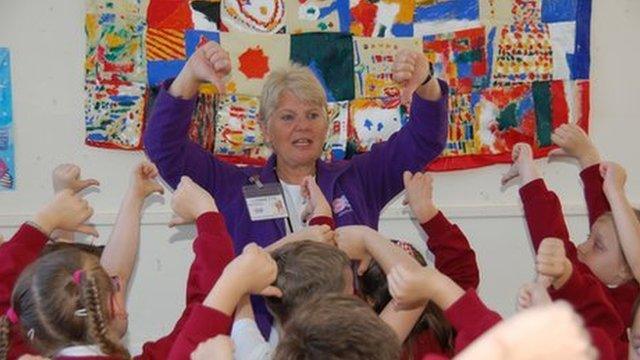Majority of South Yorkshire sexting suspects under 16
- Published

South Yorkshire Police said of the 408 cases reported in the past year, 238 involved a suspect under 16
The majority of suspects in cases involving "sexting" are under 16, a police force has said.
More than half of those reported to South Yorkshire Police for sharing nude or explicit images of children via mobile phone or online were themselves under 16.
Of 408 cases reported in the past year, 238 involved a suspect under 16.
A senior teacher from a Sheffield school said sexting among teenagers was "an epidemic".
Chris Beckett, assistant headteacher at Westfield School in the city, said teenagers sharing naked images of themselves had become commonplace.
However, he said staff at the school were doing their best to educate young people and offer them support.
'Stop and think'
Mr Beckett said: "We need to educate, we need to let people know the dangers and the impacts of those things when these kinds of things happen. At the same time we need to support when these things do.
"They are young people, they learn by making mistakes."
The UK's National Crime Agency (NCA) previously said sexting has become "normal" among teenagers.

What is sexting?
Sending indecent selfies to a friend or partner using a smartphone is known as sexting.
Sexting itself is not a crime but can be recorded under various headings including taking and possessing indecent images, which becomes sexting when shared on social media.
Typically in England and Wales, producing and distributing sexual images of anybody under 18 is a criminal offence, even if two under 18s are sexting one another.

Police are now trying to tackle the problem by offering lessons in school about the issues surrounding it.
Katie Rowland-Wilson, Acting Sgt for the Schools Offices and the Anti-Social Behaviour Team, said holding education sessions in schools was helping raise awareness.
"It makes them [the pupils] aware of the social picture, the moral issues and also the legislation, but I think it also helps them stop and think before they hit send on that image," she said.
The NSPCC, external said nationally, more than 2,000 children were among those reported to police for indecent images offences over the past three years.
A spokesperson said: "We have long believed that in many cases, children who send a sext should not be criminalised, but rather educated about the dangers."
The Director of Public Prosecutions, Alison Saunders, also said underage sexting between consenting children in a relationship should not be prosecuted, but cases which involved "exploitation, grooming or bullying" might lead to legal action.
Ms Saunders told the BBC: "If they are children, they are the same age, there's no suggestion or any coercion or bad motives, then we would not expect that case to be prosecuted. "
- Published20 September 2016

- Published22 March 2016
